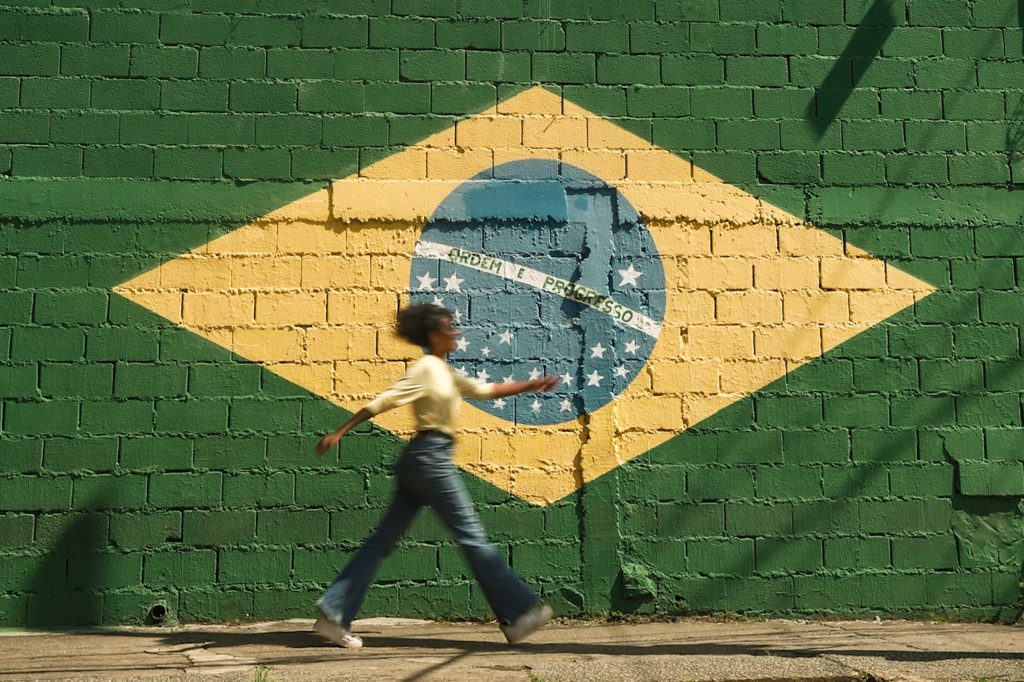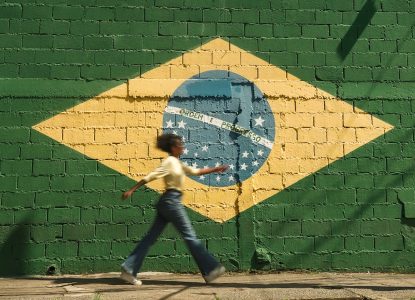By Knox Thames, United States Institute of Peace
–
On August 8-10, The International Center for Law and Religious Studies (ICLRS) and Centro Brasileiro de Estudos em Direito e Religião (CEDIRE) held a conference involving religious and civil society leaders from around the world entitled “Building Bridges, Breaking Barriers: The Role of Religious Freedom in Building a Free, Just, and Mutually Supportive Society. The conference, held in Brasilia, Brazil, was especially significant due to Brazil’s upcoming G20 Presidency in 2024. Several delegates from the G20 Interfaith Forum Association were in attendance. This essay is taken directly from Thames’s address at the symposium.
– – –
A pandemic of religious persecution is sweeping the globe. Christians of all denominations face repression because of their beliefs, while other faith communities and those holding no beliefs also suffer. As I write about in my forthcoming book, persecution comes in various forms, from authoritarian governments, democracies, extremists, and terrorists. Persecution does not respect borders and impacts all faith groups. A hurting world needs help.
How Much Do We Value Our Values?
The reality of religious persecution for so many exists in spite of global efforts to protect religious freedom. 2023 marks the 75th anniversary of the Universal Declaration on Human Rights, the 25th anniversary of the International Religious Freedom Act in the United States, and the 10th anniversary of the EU Guidelines on Freedom of Religion or Belief. Yet repression on account of religion or belief continues. Countries valuing freedom of thought, conscience, religion or belief are at an inflection point. How much do we value our values?
Brazil has an opportunity to play a unique and needed role, one in line with its values and foreign policy, to help meet this challenge. South America’s largest country by population, landmass, and economic strength, Brazil has the resources, expertise, and political significance to be a force for good in the world. And considering how religious freedom is a shared value across the Americas, both north and south, it presents an opportunity to unite the hemisphere in an effort to encourage respect for freedom of religion or belief outside our region. Brazil, alongside the United States, Canada, and other Western Hemisphere nations, could rescue the persecuted and speak out for the oppressed.

Brazil – Ideally Situated for Influence
Brazil’s religious and ethnic diversity is a strength, much like in the United States. According to a 2019 Datafolha survey:
“50 percent of the population identifies as Roman Catholic, the same as the previous survey in 2016 but down from 60 percent in 2014. Atheists and those with no religion represent 11 percent, and the proportion of evangelical Christians is 31 percent, compared with 24 percent in 2016.” About 5 percent practice Afro-Brazilian religions or Spiritists, while small communities of Muslims and Jews live successfully in major cities.
That’s not to say either of our countries are perfect – they are not – and we much continue to live up to our founding ideals and defend religious minorities.
However, Brazil has a firm legal foundation. Brazil’s constitution protects religious freedom, declaring:
“freedom of conscience and of belief is inviolable, the free exercise of religious cults being ensured and, under the terms of the law, the protection of places of worship and their rites being guaranteed.”
It also declares:
“no one shall be deprived of any rights by reason of religious belief or philosophical or political conviction.”
Diplomacy and Brazil’s Unique Path
With Lula returned to the Presidency, he has worked to craft a middle-way diplomacy. While against Russia’s invasion of Ukraine, his administration has emphasized dialogue between the two belligerents, wanting to avoid a new Cold War. As Lula’s foreign policy adviser said to the Financial Times, the West must “take into account” Putin’s security concerns, something the Biden administration, NATO allies, and Ukrainians would disagree with.
Brazil is returning to its own approach, one that looks similar to what Pope Francis has promoted. Yet, the Lula administration favoring a route of dialogue does position it for influence, if it chooses to use that influence. In addition, President Lula has continued to engage China as a trade partner, despite the increasing authoritarianism and devastating policies against human rights.
While human rights activists were hoping for more, Lula’s non-aligned status as a democracy can still have impact. Lula indicated he would press Nicaragua’s Ortega to release Bishop Rolando Alvarez, personally lobbying for his freedom. Considering Brazil’s close ties with Nicaragua, such an intervention is only possible by Lula, in a way not possible for either the Holy See or the United States. I witnessed similar work when Brazil engaged Iran for the release of pastors and raised with North Korea their repressive system.
In addition, Brazil’s involvement has strengthened international religious freedom advocacy efforts. Brazil is known for supporting multilateral diplomacy, favoring working through the United Nations and the Organization of American States. In continuation of this, Brazil has played a key leadership role in setting up and guiding the International Religious Freedom or Belief Alliance. Brazilian Baptists and others, working with the Itamaraty, helped resettle religious minorities from Afghanistan fleeing the Taliban.
Religious Freedom Work Domestically and Internationally
The Bolsonaro government committed Brazil to host an international summit on religious freedom. I hope the Lula administration will uphold this commitment and demonstrate Brazil’s support of international religious freedom. Having served in both the Obama and Trump administrations at the State Department, I know the challenge of keeping priorities consistent between very different leaders. It is hard to protect the work of promoting religious freedom from partisan influences. And living in the Washington, DC, area, the events of January 6th at home were shocking like the events of January 8th here. However, political turmoil and disagreement should not distract from core values in international affairs. Allowing ourselves to be pulled away limits influence and leaves millions facing persecution without friends or allies.
There will always be a temptation in politics to mix domestic debates about religious liberty with the work of combating religious persecution abroad, both in Brazil and the United States. Concerned about this issue in my country, I co-authored a report for the U.S. Institute of Peace with recommendations to protect the international work from partisanship, as the situation abroad is often life-and-death. In Brazil, while some criticized the previous government’s use of religion for political ends, Brazil’s global partners welcomed its forward-leaning efforts to promote international religious freedom. Experienced Brazilian diplomats steered Brazil away from an overtly political or ideological approach. They promoted religious freedom holistically, as a universal human right, in a way that built off Brazil’s unique international standing as a leading Global South nation.
The global religious freedom movement needs Brazil’s engagement, especially with international meetings. Brazil hosting the G20 Interfaith Meeting next year is an encouraging thought, one I hope they will take up energetically and integrate with their other G20 priorities. Regarding international meetings on human rights and religious freedom, to date, all the summits have been convened in the United States or Europe. The Czech Republic will host the next ministerial in November, which I appreciate. Having South America’s leading nation host next would bring important geographical diversity while providing the Lula administration a tangible way to show its commitment to the issue. In addition, having a center-left government convene the global meeting would reinforce political diversity and demonstrate how religious freedom matters across the political-ideological spectrum.
During my diplomatic service for the United States, I oversaw the two religious freedom summits held in Washington. They are significant undertakings. If it’s infeasible to host an international meeting here in the capital, Brazil could convene a regional discussion about how to jointly promote our shared value of religious freedom globally, which could still have tremendous impact. Such a conversation could occur in Brasilia, at the Organization of American States headquarters, or at the annual OAS General Assembly.
Brazil will conduct its human rights diplomacy differently from the United States. We don’t need Brazil to copy the U.S. approach, but we do need Brazil to join hands in this effort to combat extreme persecution on account of faith. Brazil wields considerable diplomatic, economic, and political weight. Millions of persecuted women and men, and many children, from all faiths and none, need our help.
– – –
Knox Thames is a visiting expert at the U.S. Institute of Peace with the Middle East and Religion and Inclusive Societies teams. Thames joined USIP after 20 years of government service, including at the State Department and two different U.S. government foreign policy commissions. Most recently, Thames served across two administrations as the special advisor for religious minorities in the Near East and South and Central Asia at the U.S. Department of State. The first to serve in this capacity, he received a civil service appointment in September 2015 to lead State Department efforts to address the situation of religious minorities in these regions. Thames previously served on the U.S. Commission on Security and Cooperation in Europe—also known as the Helsinki Commission—as well as with the U.S. Commission for International Religious Freedom, AmeriCorps, and the U.S. Army War College as an adjunct research professor. In addition to USIP, he is currently a senior fellow with the Institute for Global Engagement.


